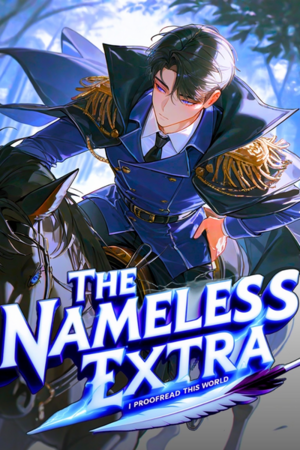Chapter 4:
Sherlock Holmes and the Half Baked Sandwitch
The Morning Writer's Short Story Compilations
Holmes was silent. He stared at the sandwich with wide eyes as though he was captivated at the manner in which oddly it moved. His grimy fingers held it tighter.
Watson grasped a poker from the hearth. Its metal end glinted a bit in the hot embers. "Holmes, step back!"
But before he could strike, Holmes moved forward and took the sandwich in both hands. The bread compressed between his fingers and dropped onto the backs of his knuckles. He gazed at it, trembling, as though the sandwich contained secrets he couldn't fathom.
"No!" Watson exclaimed, but Holmes carried it to his lips.
The bite was cautious and slow. The noise—loud and wet—was sickening Watson. Holmes chewed expressionlessly and glanced away. A dark substance oozed from the corner of his mouth.
He stopped abruptly. He dropped the sandwich onto the plate with a bang, and it split open.
Inside was nothing—no meat, no cheese. Only raw dough that moved and was alive with dark streaks in it. And something else.
A paper
Little rolled-up infant
An item
Watson gasped and let the poker fall. It clattered on the floor. "Holmes, what have you done?"
Holmes rinsed his mouth and stared at the mark on his hand. "I. I felt it," he murmured to himself. "It felt me."
The room chilled, and the fire crackled and sent crawling shadows upon the walls. Watson had breath in front of him to see. He forced himself to look at the sandwich a second time. Something within him shifted a little and revealed glimmering hints and developing shape and arms.
"It has to be destroyed," Watson declared, grasping the poker. "Now."
Holmes nodded but kept glancing at the gruesome view. Watson placed the plate in the fire and watched the fire consume the dough. It didn't burn bread-like. It Screamed—the room was filled with a piercing shrieky noise. The dark color twisted and exploded with spark,s and the little shape convulsed before becoming as.h
It was awful—yeast and metal smells and worse. Watson pulled his handkerchief over his nose and glared at Holmes. "What's that?"
Holmes slumped in his chair, and his colour waxed pale. "I don't know," he murmured. "I think… I think I sent it."
"What do you mean?"
Holmes rested his hands on his head and tried to remember. "I didn't sleep last night. I couldn't concentrate. I felt a person in my head. I think I went to the kitchen. I think I—" He trailed off and shivered. "I don't remember."
Watson standing beside him and grasped his shoulder. "Holmes, you don't make sense. You are extremely tired. You have over-exerted yourself."
Holmes smiled, though it was an empty and sorrowful smile. "No, Watson. It's not fatigue. It's something else. Something I have made."
The fire crackled, consuming the last of the sandwich. The screaming faded, leaving only silence. Watson studied Holmes, searching for the man he knew—the brilliant, unshakable detective. But this Holmes was fractured, his mind a maze with no exit.
"Look at me," Watson replied. "You are Sherlock Holmes. Whatever this was, it is gone now. We burned it."
Holmes stared into his eyes but couldn't comprehend them. "Is it so, Watson? Am I losing my mind?"
Watson was chilled. He wanted to protest and tell her that it was already done. And then he saw something.
Holmes' fingers
The dough was gone. The flour and the dark stains—missing. His fingernails were spotlessly clean, as if nothing had ever happened.
Deep within Watson's stomach, he knew in his heart that whatever had begun here was not going to end.
Days later, Holmes returned to his cases, as sharp as ever. Watson observed him closely, waiting for a sign or a difference. There was none. They never discussed the sandwich again.
Occasionally, midnight would find Watson awakened by the faint scent of bread. It drifted through 221B like a ghost, teasing his senses, pulling him from restless dreams. He’d lie still, eyes tracing the ceiling, waiting for the sound of breathing—something alive in the dark. But there was only silence, thick and heavy, pressing against his chest.
The first time it happened, he dismissed it as imagination—a trick of a mind strained by the sandwich’s horror. But the scent returned, night after night, growing stronger, sharper, until it wasn’t just bread but yeast and metal and that other smell, the one he couldn’t name. He began to dread sleep, fearing what lingered beyond the edge of wakefulness.
Holmes, meanwhile, seemed untouched. He threw himself into his work with ferocious intensity—cases solved, villains unmasked, his brilliance undimmed. Yet Watson noticed the subtle cracks: a hesitation before eating, a glance at his hands as though expecting stains. Once, Watson caught him standing in the kitchen, staring at the oven, his face unreadable.
"Thinking of baking, Holmes?" Watson asked, forcing a laugh.
Holmes blinked, as if waking from a trance. "No," he said softly. "Never again."
But Watson wasn’t convinced. The sandwich had left a mark—not on the walls or the hearth, but on Holmes himself. His memory, that steel trap of a mind, had failed him, and the void it left gnawed at him. Watson saw it in the way Holmes’s fingers twitched, as if itching to knead dough he couldn’t recall shaping.
One night, the scent woke Watson again, stronger than ever. He rose, heart pounding, and followed it to the sitting room. There, in the flickering glow of the dying fire, stood Holmes, holding a knife. Before him, on the table, was a fresh loaf—golden, perfect, untouched.
"Holmes?" Watson’s voice trembled.
Holmes turned, his eyes wild, glittering with something beyond reason. "It’s here, Watson," he whispered. "Inside me. I can feel it rising."
Watson stepped closer, the poker’s weight forgotten in his hand. "Put the knife down. You’re not well."
Holmes laughed—a sharp, broken sound. "Not well? I’m alive, Watson. More than ever. It’s part of me now." He sliced the loaf, and the bread parted cleanly—no raw dough, no dark veins. Just bread.
But Holmes stared at it, transfixed, as though seeing something Watson couldn’t. He dropped the knife, sank into his chair, and buried his face in his hands. "I made it again," he murmured. "I don’t remember."
Watson burned the loaf that night, watching it crumble to ash. Holmes didn’t protest, but his silence was heavier than words. The scent faded, the nights grew quiet, and 221B settled into uneasy peace.
Yet Watson knew: whatever Holmes had birthed in that half-baked nightmare hadn’t died. It lived in him, waiting, rising like dough in the dark.
And one day, it would break free.



Please sign in to leave a comment.